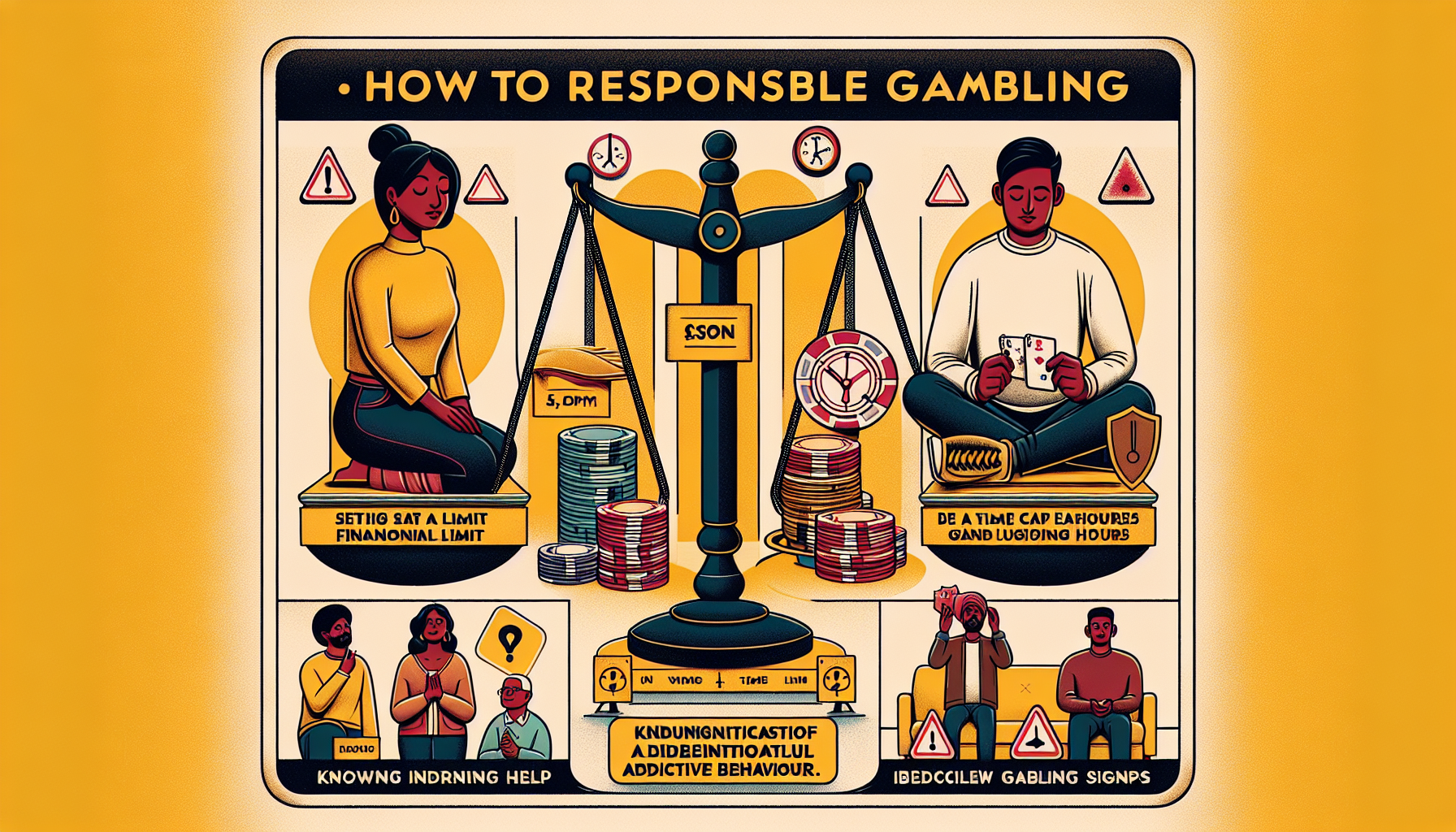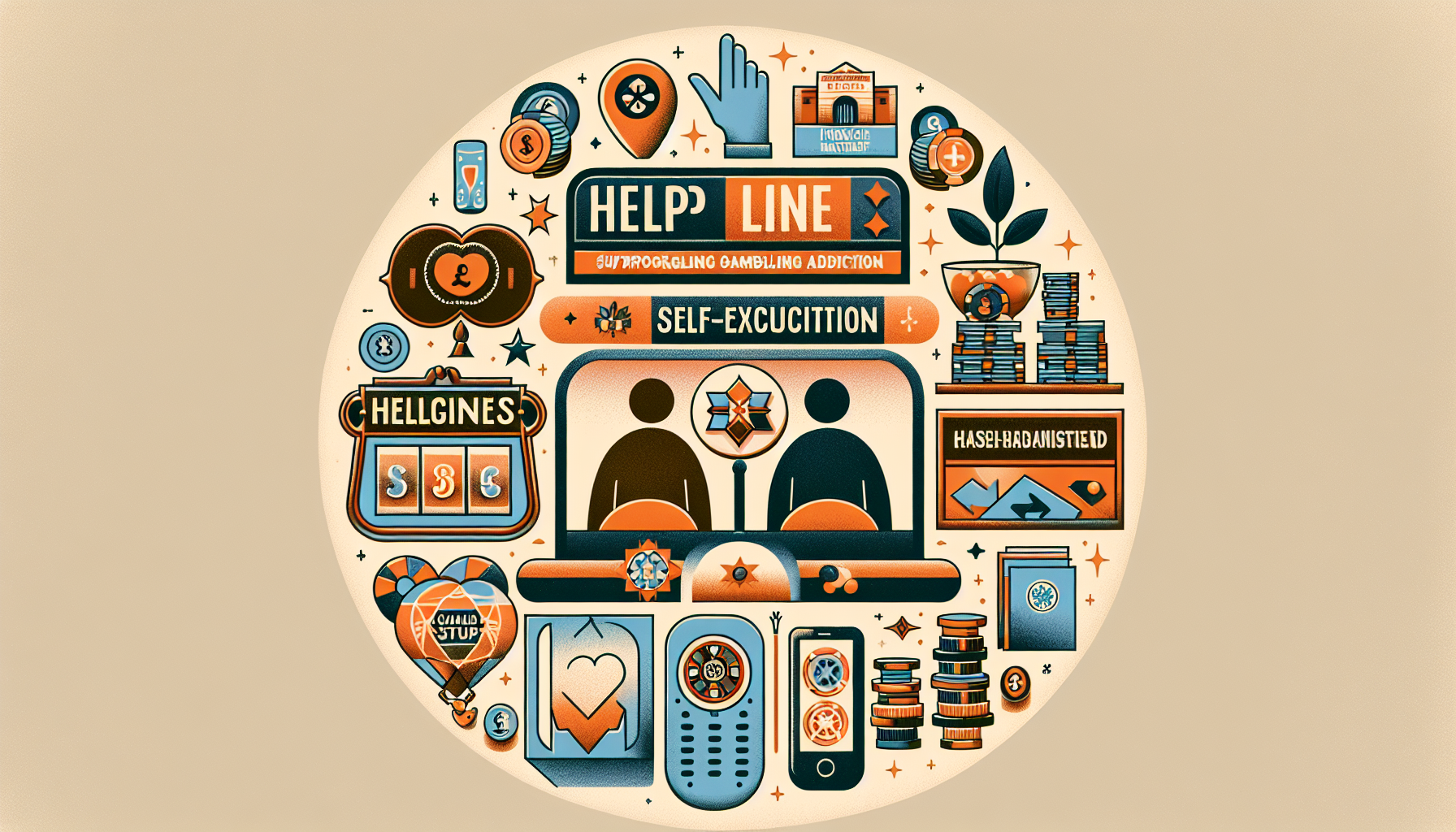Responsible Gambling: How to Keep Your Casino Experience Fun and Safe
Chapter 1: Understanding Responsible Gambling
1.1 Definition and Importance
Responsible gambling ensures that gambling remains a fun activity without causing harm. It involves understanding the risks and setting boundaries to avoid addiction.
It’s crucial to maintain control over your gambling habits to prevent financial and emotional distress. Education about responsible gambling is the first step to ensuring a safe gaming experience.

1.2 The Psychology of Gambling
The excitement of gambling is linked to the brain’s reward system. Understanding the psychological triggers can help you recognize when gambling becomes a problem.
It’s important to be aware of how emotions and cognitive biases can influence gambling decisions, leading to potential problems.
1.3 Risks of Problem Gambling
Problem gambling can lead to severe consequences, including financial ruin, relationship issues, and mental health challenges. Recognizing the signs early can help mitigate these risks.
Public awareness campaigns and education can play a significant role in reducing the stigma associated with seeking help for gambling problems.
Chapter 2: Strategies for Responsible Gambling
2.1 Setting Limits
Set both time and money limits before you start gambling. Stick to these limits and avoid chasing losses to maintain a balanced gambling habit.
Many casinos offer tools to help you set limits on your spending and playing time, which can be invaluable for maintaining control.
2.2 Recognizing Warning Signs
Be alert to warning signs such as spending more time or money than planned, borrowing money to gamble, or neglecting responsibilities.
Early recognition of these signs can prevent the escalation of gambling problems and help maintain a healthy balance.
2.3 Balancing Gambling with Other Activities
Ensure gambling remains a leisure activity by balancing it with other hobbies and interests. This helps keep perspective and enjoyment without over-reliance on gambling for entertainment.
Engage in social activities that do not involve gambling to diversify your leisure time and reduce the risk of developing a gambling dependency.
Chapter 3: Resources and Support Systems
3.1 Helplines and Counseling Services
There are numerous helplines and counseling services available for those struggling with gambling issues. These resources provide confidential support and advice.
Seeking help is a sign of strength, and these services can offer guidance tailored to your specific situation.

3.2 Self-Exclusion Programs
Self-exclusion programs allow individuals to restrict their access to gambling venues and online platforms. This is a proactive step for those who feel they are losing control.
These programs can provide a much-needed break from gambling, helping individuals regain control of their habits.
3.3 Financial Management Tools
Utilizing financial management tools can help track spending and ensure that gambling remains within affordable limits. These tools can provide insights into spending patterns and help set realistic budgets.
Understanding your financial situation can prevent gambling from impacting your economic well-being.
Chapter 4: Online Gambling and Technology
4.1 The Rise of Online Gambling
Online gambling offers convenience but also presents unique challenges. Understanding these can help you navigate the online gambling landscape safely.
With increased accessibility, it’s more important than ever to practice responsible gambling online.
4.2 Tech Tools for Responsible Gambling
Technology offers various tools to aid responsible gambling, such as apps that track time and spending, and features that limit access to gambling sites.
Utilizing these tools can enhance your ability to gamble responsibly and maintain a healthy balance.
4.3 Safeguarding Personal Information
With online gambling, protecting personal and financial information is crucial. Ensure the platforms you use are secure and reputable.
Practicing cybersecurity measures can protect you from identity theft and financial fraud while gambling online.
Chapter 5: Creating a Supportive Environment
5.1 Family and Friends’ Role
Family and friends can play a vital role in supporting responsible gambling practices. Open conversations about gambling habits can provide a support network.
Having a supportive network can help you stay accountable and recognize when gambling is becoming problematic.
5.2 Community-Based Programs
Community programs offer education and support for responsible gambling. Participating in these programs can provide additional resources and peer support.
Community involvement can help reduce the stigma associated with gambling issues and promote healthy gambling habits.
5.3 Advocacy and Awareness
Advocacy and awareness initiatives can promote responsible gambling on a larger scale, encouraging policy changes and increased funding for support services.
Participating in or supporting these initiatives can contribute to a healthier gambling culture.
Conclusion
Responsible gambling is about ensuring that gambling remains a fun, controlled activity. By understanding risks, setting limits, and utilizing available resources, you can maintain a safe and enjoyable casino experience. Embrace the tools and support systems available to enhance your gaming experience while keeping it within safe boundaries.
